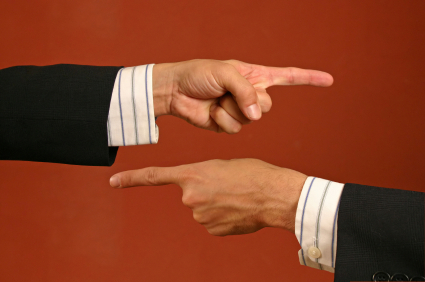3 Words That Prove I Own My Actions
Ownership or excuses. One is the mark of a leader. The other is a sign that I am bound for mediocrity and failure. In the long run, people who make excuses stall out.
Making excuses is a habit. I wrote about how West Point deals with this habit in West Point: How Leaders Seize Accountability. But what are the results for me if I habitually make excuses?
Trust
If I am in the habit of making excuses, people will not trust me. That is bad for anyone. But, for a leader it is deadly.
There are lots of ways a I can lose the trust of the people I lead. But, consistently making excuses for my behaviors or for the actions of the people on my team fosters a culture where no one is accountable.
Courage
Every time I choose to make a choice to avoid responsibility for my actions, it becomes easier to do again in the future. This is how habits are formed.
Shirking responsibility is a cowardly act. Each time I do it, I am closer to making cowardice a part of who I am. If that becomes a habit, few people will respect me, let alone follow me.
Growth
Every time I avoid the consequences of my actions, I miss an opportunity to grow. Growth comes when I learn from my mistakes.
By making an excuse I have pushed responsibility away from me and on to something or someone else. What is my incentive to grow? That is why people who make excuses often never reach the next level.
3 Words That Prove I Own My Actions
It’s My Fault.
These are simple words to say alone. But, if you are like me, they can get caught in my throat when it is time for me to truly step forward and seize ownership.
Personal accountability is hard.
- It takes courage to let the people I follow know – “Its my fault.”
- It takes courage to let the people I lead know – “It’s my fault.”
- It takes courage to let the people I love know – “It’s my fault.”
If I think hard and try to remember hearing these simple words at work, I realize how rare accountability really is. I worked hard to break the excuse habit at work. The scary thing is, I realize I still have a problem with that at home.
The Bottom Line:
When I am in the habit of making excuses it bleeds into all areas of my life. At work, at home, or with friends excuses are part of the fabric of my relationships. The more excuses I choose to include in those relationships, the weaker those relationships are.
By seizing responsibility instead of making excuses, I will build trust with others. Courage will be one of my character traits. And, I will be characterized by consistent growth as a person and as a leader.
It’s My Fault
Those three words are rare in our day and age. They are as rare from adults as they are from children. Maybe if adults took ownership instead of making excuses, our kids would do the same thing. Is there any doubt our children follow what we model more than what we say?
Question:
What excuses do you need to stop making?


Another great article, Dave. Accountability starts with courage.
Your post reminds me of this quote from Winston Churchill: “Courage is rightly esteemed the first of human qualities, because it is the quality that guarantees all others.”
Thanks!
Scott
That quote is very similar to the CS Lewis quote I have running at the top of my web page. They were contemporaries. I wonder who said it first?
Hi Dave,
Good one:)!!!
The Pic says it all!!! It is befitting to the adage “A picture is worth a thousand words” Accountability is a value that one should imbibe within!! It is not taught in business schools!!
Thanks and Regards
Nagamani
I loved the picture when I first saw it too. Thanks!
Excellent stuff Dave,
I think of the freedom that comes with being accountable. When we make excuses what we really are doing is telling lies. Telling the truth and being accountable is freeing because we don’t have to pretend to be someone we are not.
I think our kids will learn from us (though the innate desire to protect one’s reputation is a personal battle) and at least see what good looks like. In leadership, our colleagues will also see and hopefully model the same.
So many people worry about others and how we influence them. I agree Garrett. Our personal example does more than just about anything else to sway the behaviors of others.